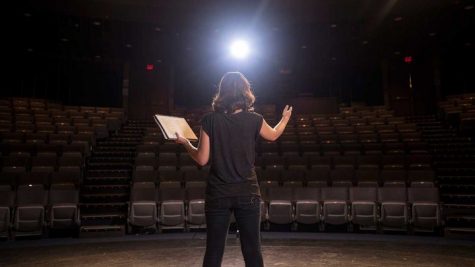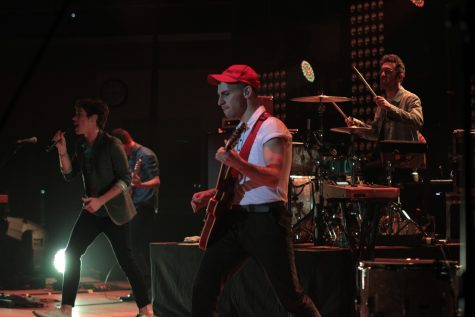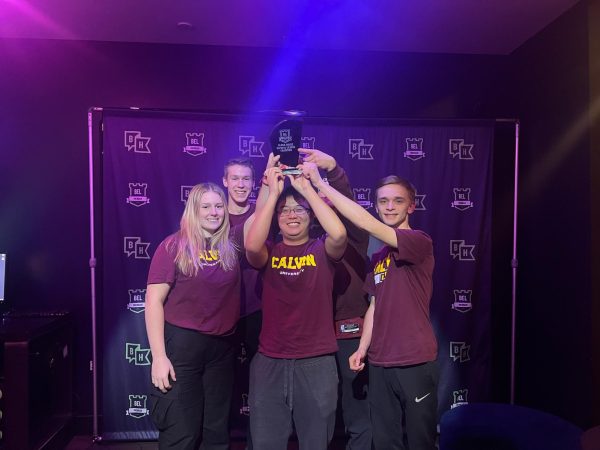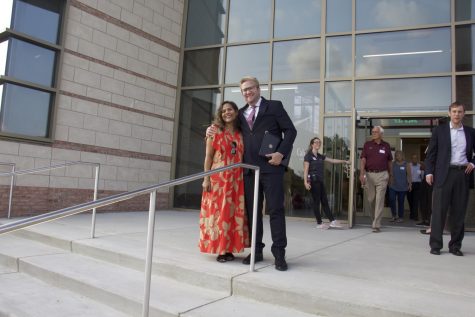African Dance: Entertainment as History in Politically Aware Times
For many Calvin College students desperate to get a PER credit out of way, New Years Day came with the good news in the form of an 9 a.m. email: “If you are interested in completing a PER core requirement during interim, then consider adding PER 140 “Special Topics: African Dance” to your interim schedule.”
Up until that point, only four PER classes had been offered for interim, and once they had been filled to capacity, hopeful souls had added themselves to the waiting list anyway on the off chance that perhaps 36 people would miraculously drop Volleyball, letting you rise to the top of the waitlist and into the class (there aren’t even 36 spots in Volleyball and the lovely lady at the Registrar told me I was wasting my time). Given the choice to work out for three hours twice a week during interim, or twice a week over the course of an entire semester, many people would happily take the interim option. Even if said Africa Dance class was taught by a Dutch woman (one could only assume with a name like Vander Well), I would be happy to.
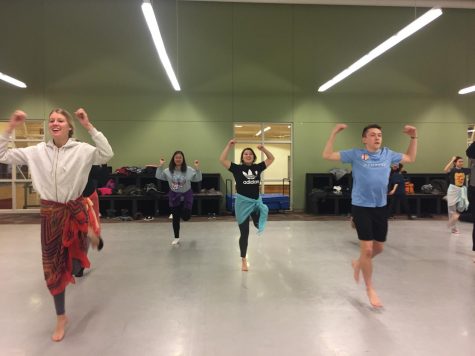
As a Ugandan who brought a healthy dose of skepticism to this class, I’m always of the opinion that in the event of teaching something cultural particular to a specific ethnicity, especially minority ethnicities of color, one should always seek a teacher of closest relation to that culture. To put it bluntly, a white lady teaching me, an African, about African Dance rubbed me a peculiar type of way.
I’m happy to say I was pleasantly surprised. My assumption was not that she wouldn’t know what she was talking about; I just didn’t know what to expect. What I also didn’t know was that disguised behind Ms. Vander Well’s Dutch name were deep Colombian roots. She expressed that she is always nervous, as a Hispanic woman, to teach this course because she can’t claim it as her own, however when she trained in Ghana, she “felt this emotional connection to [her Colombian] ancestry.” She went on to say that “I share that with the student but always communicate that in no way am I an expert, I’m just sharing what I know. I think it’s always a slippery slope when dealing with whether non-black people should be allowed to teach African dance.”
Our class focused on dances particularly from West Africa, particularly Ghana and Nigeria. It focused on the traditions and surrounded dance, and it explained that dance wasn’t so much incorporated into elements of West African life as it was the bare bones of it.
Weddings, funerals, births, deaths, harvests; they all traditionally have dances. The women wear shawls around their waists and are just as involved as the men. In fact there is one other African student in the class besides myself, and he is from Ghana. After the first class, when I asked him how he felt about the whole affair, he said “It’s interesting, I think it will be fun.”
In current politically-aware times, it’s no longer so absurd that in the middle of Michigan, a non-African woman is teaching a room full of mostly white, and some Asian, students what it means to immerse oneself in African Dance. A student expressed their initial hesitation in signing up for the class because she “didn’t want to participate in [appropriating African culture] as just being cool and exotic.” We quickly grew accustomed to the fact that our drummer, with all of her African leather drums, was a white woman that had been trained by a West African man.
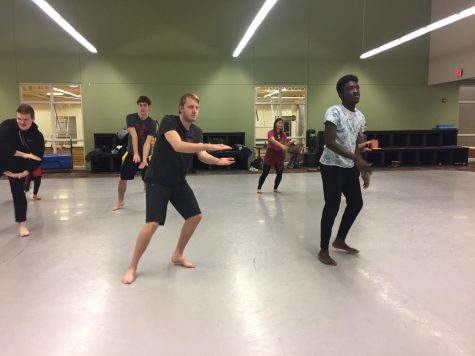
The beauty of it is that it exposes us to elements of humanity that aren’t remotely close to cultures of our own. We have danced, and learned and choreographed movements that we might never have had the chance to do otherwise, certainly within our college careers. Would I have preferred that a West African man or woman taught the class? Sure. But I think we’ll get there eventually, and that in the larger scheme of things, learning new ways of life is a beautiful mission to pursue regardless of the vessel.
Benedict, the solo Ghanian in the class, left this closing remark: “Even though I am from Ghana, this class has taught me a lot on the essence of rhythm and dance in the African culture… It’s quite interesting to see a Dutch lady dancing asthough she hails from Africa… I’d like to recommend this class to everyone especially Africans because there’s more to the rhythm and dance than we personally know!”





